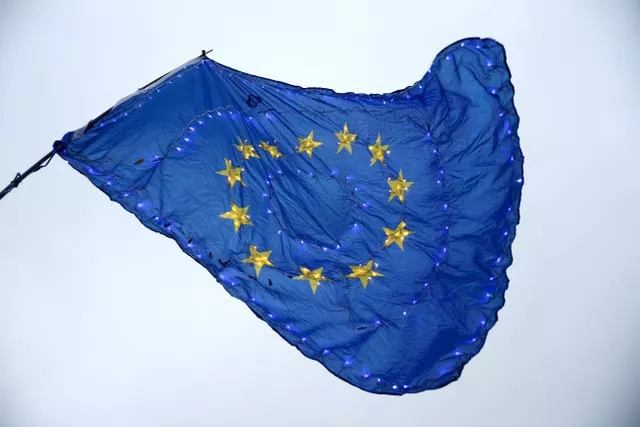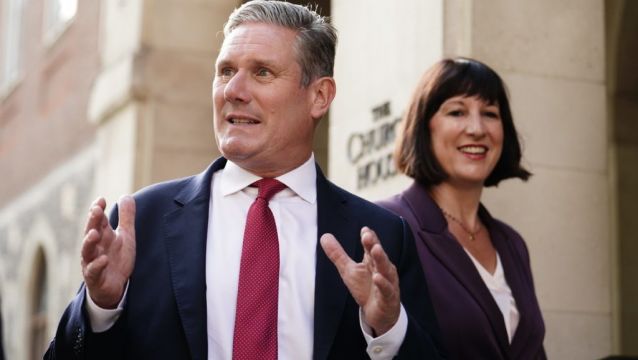Shadow chancellor Rachel Reeves has dismissed claims Labour wants to effectively undo Brexit as she defended Sir Keir Starmer’s position of not wanting to diverge from European Union standards.
The row came after the Labour leader told a conference of centre-left politicians in Canada that under his leadership the UK could have a close relationship with the bloc because “we don’t want to diverge, we don’t want to lower standards”.
The comments were seized on by the Conservatives, with UK chancellor Jeremy Hunt claiming they would “worry a lot of people that what he really wants to do is to unpick Brexit”.
Ms Reeves rejected the assertion, saying: “We don’t want to rejoin the EU in name or any other way; we accept the result of the referendum.”
But, Ms Reeves said, Labour does want “a better relationship with our nearest neighbours and trading partners”.
She told BBC Radio 4’s Today programme: “It shouldn’t come as a surprise to people that an incoming Labour government doesn’t want to dilute workers’ rights, environmental protections or food standards. That’s not what Labour are about.
“But because we want those high standards, we think it is easier for an incoming Labour government to get a better deal with the EU to improve trading relations.

“Because the truth is, the deal that Boris Johnson secured three years ago is not good enough and we have seen a decline in trade between the UK and other European neighbours.”
She insisted there would not be “dynamic alignment”, where the UK follows changes from Brussels, and “we are not going to be rule takers”.
Ms Reeves pointed to UK prime minister Rishi Sunak recently re-entering the bloc’s Horizon research programme as evidence he was also not seeking divergence in all areas from the EU.
Mr Starmer could be heard suggesting in footage obtained by Sky News that the more the UK and Brussels “share a future together” the less friction there would be between the two.
He has previously hinted he would seek a closer relationship with the bloc if he won power but has exercised caution in discussing these plans publicly.
Speaking at an international summit of “progressive” politicians including Canadian prime minister Justin Trudeau over the weekend, he was more explicit about what his vision might involve.
“Most of the conflict with the UK being outside of the (EU) arises insofar as the UK wants to diverge and do different things to the rest of our EU partners,” he said.
“Obviously, the more we share values, the more we share a future together, the less the conflict, and actually, different ways of solving problems become available.

“Actually, we don’t want to diverge, we don’t want to lower standards, we don’t want to rip up environmental standards, working standards for people that work, food standards and all the rest of it.”
Mr Starmer has been clear that there are “red lines” he will not cross in the post-Brexit relationship with the EU, Labour frontbencher James Murray said.
“We don’t want to be in the single market. We don’t want to be in a customs union. We don’t want to bring back freedom of movement,” the shadow financial secretary told Sky News.
But environment minister Mark Spencer accused the Labour leader of “flip-flopping” in his approach to Brussels, telling GB News: “To keep obsessing – as the Labour Party do – over Brexit and looking back with pink-tinted spectacles and talking about following their rules, I think just takes us back in time.”
Chancellor Mr Hunt told LBC: “I think those kinds of comments about not wanting to diverge will worry a lot of people that what he really wants to do is to unpick Brexit.
“And we are going to make a tremendous success of Brexit. We’ve already started to do so. And there’s lots more to come.
“We want to be good friends with our neighbours across the Channel. But I think any suggestion that you want to align our laws and regulations with the EU will worry a lot of the people who voted for Brexit.”
Labour will be seeking to win back parts of the electorate who voted to leave the EU in the 2016 referendum, and discussion of strengthening ties has been approached with caution so far.







